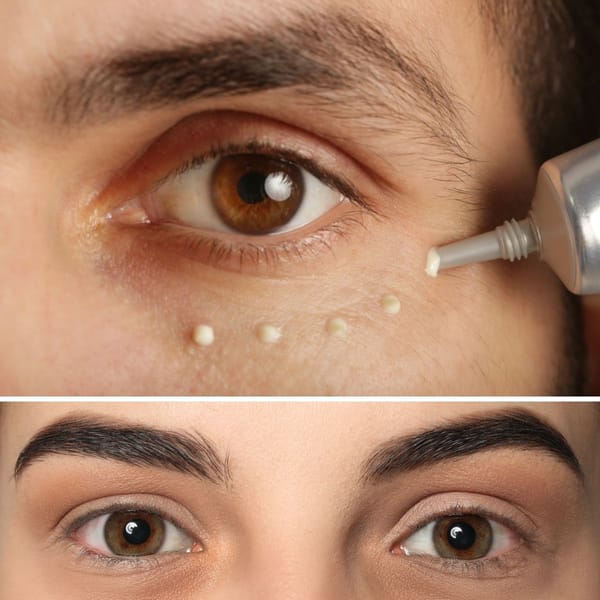Making the switch to natural deodorant is becoming increasingly popular as consumers seek out healthier, more environmentally friendly options. But what happens when you ditch traditional antiperspirants for something more natural? Let's explore the side effects of this change.
Key Takeaways:
- Switching to natural deodorant can lead to an adjustment period with potential side effects such as increased odor and sweat, skin irritation, and detox reactions.
- Understanding the ingredients in natural deodorants and how they work can help manage expectations and ease the transition.
- Most side effects are temporary, and there are steps you can take to minimize discomfort during the switch.
Understanding the Transition to Natural Deodorant
When you switch to natural deodorant, your body undergoes an adjustment period. Traditional antiperspirants often contain aluminum compounds that temporarily block sweat ducts, reducing wetness. On the other hand, natural deodorants aim to neutralize odor and absorb excess moisture without inhibiting the natural sweating process. This fundamental difference can lead to an increase in both sweat and odor as your body adjusts to the new deodorant.
The Detox Phase: What to Expect
The term "detox phase" refers to the period after you stop using aluminum deodorant. Your underarm area may expel built-up bacteria and residual aluminum during this time. It's completely normal to experience more sweating and odor as your sweat glands start functioning without obstruction. This detox period can last from a few days to a few weeks, with the third week often showing significant improvement.
Increased Body Odor: A Temporary Setback
Initially, you might notice an excess odor when you switch deodorants. This is because aluminum salts are no longer suppressing the bacteria that cause odor. Many natural deodorants contain essential oils like tea tree, which have natural antibacterial properties to help keep underarms odor-free. However, it may take some time for your body to adjust fully and for these natural ingredients to become effective.
Experiencing More Sweat: A Natural Response
Since natural deodorants don't block sweat glands, you may sweat more. This is a natural process and a sign that your body is functioning as it should. Ingredients like cornstarch or arrowroot powder are often included in natural deodorant formulas to help absorb excess moisture without naturally stopping sweat.
Potential Skin Irritation: Identifying the Cause
Skin irritation, such as an underarm rash or contact dermatitis, can occur when switching to natural deodorant. This could be due to a reaction to baking soda, a common ingredient in many natural deodorants. If you have sensitive skin, look for a baking soda-free option or one with soothing ingredients like coconut oil and shea butter.
The Role of Essential Oils in Natural Deodorants
Essential oils are a key component in many natural deodorants, providing a pleasant scent and reducing body odor. However, these oils can cause an allergic reaction in such a sensitive area for some individuals. If you're prone to reactions, it's important to patch-test any new deodorant and opt for formulas designed for sensitive skin.
The Importance of Natural Ingredients
Natural deodorant brands often boast plant-based ingredients that are gentler on the skin. From coconut oil to shea butter, these natural components keep the underarm area moisturized while also helping absorb wetness and combat odor-causing bacteria.
Choosing the Right Fabric for Your Transition
Wearing natural fabrics can make a big difference when switching to natural deodorant. Materials like cotton and bamboo are breathable and can help absorb excess sweat, keeping you feeling fresher throughout the day.
Managing Excessive Sweating During the Switch
If you're experiencing excessive sweating, remember that this is part of the body's natural detoxification process. To manage excess moisture, consider reapplying your natural deodorant throughout the day and wearing loose-fitting clothing to allow your skin to breathe.
Addressing the Concerns of Yeast Infections
Switching to a natural deodorant can alter the pH balance of your underarm area, potentially leading to yeast infections for some individuals. If you notice any signs of infection, such as unusual redness or itching, consult a healthcare professional.
The Myth of Natural Deodorant and Breast Cancer
There's a common concern that aluminum in traditional antiperspirants could be linked to breast cancer. While research is ongoing, many people choose aluminum-free deodorant as a precaution. Natural deodorants do not contain aluminum zirconium or other aluminum compounds, making them a preferred choice for those looking to avoid these ingredients.
Understanding the Role of Propylene Glycol
Propylene glycol is a synthetic compound found in some conventional deodorants. It helps to absorb moisture and can act as a penetration enhancer for other ingredients. However, it can also cause skin irritation for some users. Natural deodorants typically avoid this ingredient, opting for more skin-friendly alternatives.
The Psychological Impact of Smelling Fresh
Smelling fresh is a matter of personal hygiene and affects our social interactions and self-esteem. Natural deodorants may require adjustment before keeping you smelling fresh throughout the day.
How Long Does It Take for Natural Deodorant to Work?
The adjustment or transition period can vary from person to person. Some may notice that natural deodorant works immediately, while others may need a few weeks to adjust fully. Patience is key as your body adapts to the new product.
Tips for a Smoother Transition
To ease the switch to natural deodorant, consider doing an armpit detox with a mask made from ingredients like charcoal or clay. This can help draw out impurities and reduce the duration of the detox phase. Exfoliating the underarm area can also remove dead skin cells and built-up bacteria, promoting a cleaner environment for your new deodorant.
When to Consult a Dermatologist
If you experience persistent underarm irritation or an armpit rash that doesn't improve, it's wise to consult a dermatologist. They can help determine if you're having an allergic reaction or if another underlying issue needs to be addressed.
Summary
Switching to natural deodorant can have various side effects, including increased odor and sweat, potential skin irritation, and a detox phase. However, these side effects are typically temporary and can be managed correctly. Choosing the right natural deodorant, wearing breathable fabrics, and being patient during the adjustment period can help ensure a successful transition to a healthier deodorant option.
FAQ Section
Q: How long does the detox phase last when switching to natural deodorant? A: The detox phase can last anywhere from a few days to a few weeks, with many people noticing a significant improvement by the third week.
Q: Can natural deodorant cause skin irritation? A: Yes, some individuals may experience skin irritation due to ingredients like baking soda or essential oils. It's important to choose a formula suitable for sensitive skin and to patch test any new product.
Q: Will natural deodorant stop sweating? A: No, natural deodorant is designed to absorb moisture and combat odor without blocking sweat glands. Sweating is a natural and healthy bodily function.







